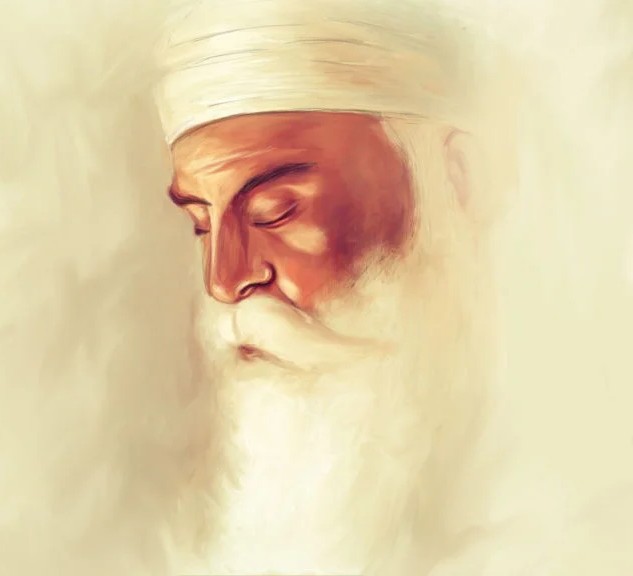

Joti Jot – Guru Nanak Dev Ji – September 16

Joti Jot is a gentle, deeply felt day: it marks the moment when Guru Nanak Dev Ji passed from the world into the eternal light. We don’t mark it as an ending so much as a continuation – the life and voice of the Guru lived on, most tangibly, in the teachings collected in the Guru Granth Sahib. For many, the day holds a quiet power: it’s a chance to slow down, to listen to the hymns and stories that shaped a movement, and to let the simple, profound lessons of equality, compassion and remembrance settle into daily life.
We celebrate Joti Jot because Guru Nanak’s life changed the way people thought about God, community and justice. He travelled widely, meeting people of every faith and background, and insisted that the Divine is not limited to temples or rituals but is found in how we treat one another. The core of the day is remembering that openness: that one should stand up for fairness, welcome strangers, and centre human dignity. That is why the observance is less about spectacle and more about presence – music, words and the quiet work of keeping a tradition alive.
What the day looks like in communities is rooted in song and story. The air fills with kirtan and recitation, but these sounds are not background noise – they carry the teachings forward, line by line. Old stories are told about Guru Nanak’s encounters, his humour, and his fearless compassion. Families and neighbours gather; cooks and volunteers move through the rhythms of the kitchen; elders share memories with children. The atmosphere tends toward reverence and warmth rather than ceremony for its own sake – it’s a living memory being renewed together.
The story of Guru Nanak is full of simple, vivid moments that still speak across centuries. Born into modest circumstances, he questioned the easy comforts of ritual when they left people hungry or cruel. He travelled by foot and boat, stopping to speak with peasants and kings alike, always returning to the same message: remember the Divine in every action, live honestly, share what you have, and break the walls that divide people. Tales of his encounters – whether with holy men, merchants, or rulers – show him both playful and uncompromising, ready to teach through a joke as often as through a challenge.
Joti Jot is, then, a day to take those stories back into ordinary life. People remember not only the public gestures of Guru Nanak’s mission but the small practices he cherished: honest work, fearless compassion, and the habit of naming the Divine in daily speech. Those habits are what keep the memory alive. In that way the observance becomes practical as well as spiritual: it asks each of us to measure our days against the standards he set – of equality, service, and steady remembrance.
In the end, Joti Jot is both grief and gratitude braided together. We feel the loss of a teacher, and we also hold the gratitude that his words remain. The day invites a kind of inward repair: to listen more, to give where we can, and to make our communities reflect the dignity the Guru insisted all humans share.